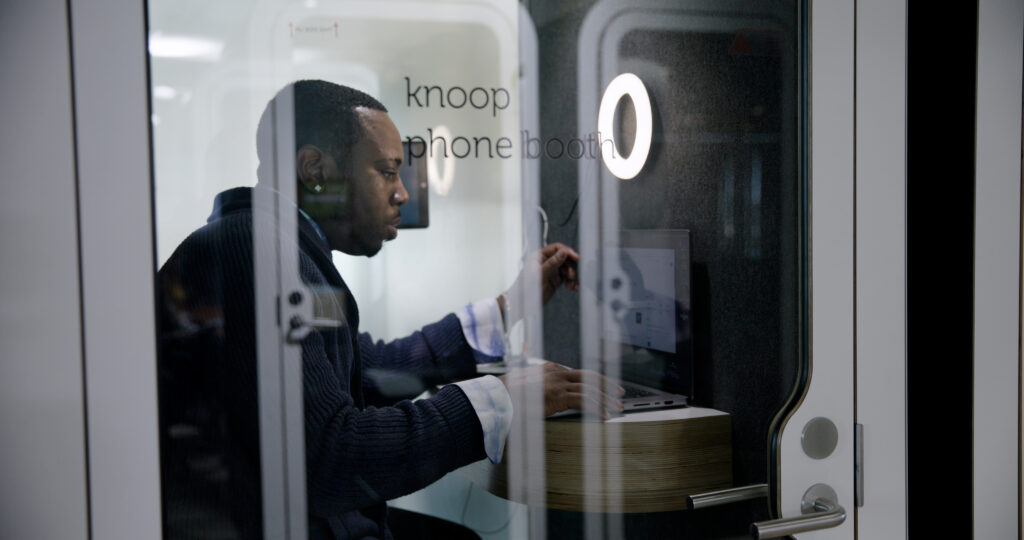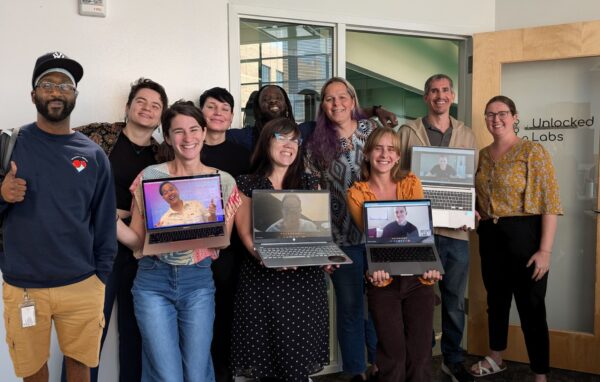Investing in a satellite office is just that: an investment. To make sure it’s a successful one, here are some things to consider and questions to ask before taking the plunge, including how to open a satellite office and find one that aligns with your business goals and objectives.
How to Establish a Satellite Office: Defining Your Goals
Before you start making any plans or decisions, think through your intentions in opening a new satellite office. What do you hope to achieve, and how does this fit into the larger strategy of your company?
Are you trying to increase revenue by tapping into an international market? Are you trying to attract talent or provide current employees more flexibility? The more specific your goals, the better. For instance, perhaps your company wants to establish itself in an industry hub. What outcomes for your company would make the time, logistical, and financial costs of setting up your satellite office worthwhile?
Understanding your objectives and the steps needed to achieve them is a crucial part of learning how to establish a satellite office with purpose and long-term success.
What is a Satellite Location, and Why Does Location Matter?
Where you open a satellite office can have many implications for your business. In many cases, seeking to establish a presence in a particular location is the main motivator behind a satellite office. But even if location isn’t your central concern, it’s worth considering how different options will impact various aspects of your company. For example, a life sciences company may want to consider Philadelphia, which ranked as the 6th best life sciences market in the US, for a satellite office in order to have access to top talent from UPenn and Drexel University, or to be in proximity to a growing network of hospitals or other life sciences companies.
Understanding what a satellite location entails involves assessing the pros and cons of certain neighborhoods and even specific offices – from employee and customer experiences to rent prices to collaboration opportunities, as well as competition.
Opening a Satellite Office and Choosing the Right Community
When deciding how to open a satellite office, identify what type of community will best help you achieve your goals. If you’re a startup looking for growth opportunities, do your research to find a location near VCs or corporations aiming to increase their innovation efforts. If you’re setting up a new office for sales staff, a high-density area that houses the kinds of companies you’re looking to land as clients could be the right move for you.
Consider access to networking events or ways to organically meet your workspace neighbors. CIC offers a robust events calendar to facilitate networking opportunities steps away from your workspace. Most CIC campuses even host a weekly Thursday gathering called Venture Café to connect our members with the local innovation ecosystem.
But, networking doesn’t just take place within the confines of networking events or pre-arranged meetings. It happens naturally throughout your day, wherever you go. Many CIC members find our fully-stocked kitchens the perfect place to meet their office space neighbors while grabbing coffee or a snack.
Thoughtfully choosing the right community is a key step in successfully opening and operating a satellite office.

How Accessibility Impacts the Success of Your Satellite Office
The ease of getting to and from the office impacts who will apply to work for your company, and how happy employees will be once they’re there. There are multiple implications for employers.
For one, fewer modes of transportation that can be used to reach your office means more restrictions on your applicant pool. Second, companies are increasingly looking at transportation as an aspect of sustainability, as well as employee wellness. An office easily accessible by public transit, biking, or walking can support your initiatives to make your workplace a health and environmentally conscious one. With locations in the heart of city centers, CIC campuses are minutes away from train stations, bus routes, and accessible by bike.
As with your main office, take note of accessibility features of your satellite office for people with various ranges of mobility or other accessibility needs. These features may be essential for members of your staff either now or down the line, and creating an accessible space from the get-go prevents you from having to make corrections or pay for expensive changes later on. Plus, you’ll be making an important cultural statement that employees and clients with disabilities are welcome at your organization.
How to Set Up a Satellite Office: Planning for Space Needs
When determining how to set up a satellite office, start by assessing how much space you need and how many employees you expect to work there. But to take it a step further, think about how your employees work. If your company allows employees to work remotely, or if some satellite office staff will be traveling frequently, you may not need as many desks in your new space in order to accommodate everyone who will come into work. No matter how your team likes to work, CIC has a workspace solution for you from coworking to private suites.
To avoid unnecessary space crunches and moves in the future, keep in mind your growth projections. If you’re hiring very quickly after a successful funding round, for example, it might make sense to rent a larger office than you currently need. Whereas if you’re adding one new team member per year, your company may be better off saving costs with a smaller office and expanding on a new lease term down the line. CIC allows our members to adjust their office size as needed, without incurring penalties for lease termination or causing disruptions that moving to a new location might impose on their staff.

How Flexibility Shapes the Success of Your Satellite Office
In addition to how quickly your company is growing, also consider if you anticipate needing your satellite office for six months, six years, or indefinitely. Quickly growing companies, or those with short-term space needs, may benefit from flexible rental agreements rather than traditional office leases. CIC’s shared office environments make this particularly easy by offering 30-day membership terms.
Fortunately, the office market has shifted in recent years to accommodate the flexibility that businesses need as they expand, contract, evolve, pivot, and react to ever-changing circumstances.
And it’s no longer just solopreneurs and startups who utilize satellite offices; organizations of all sizes, including government agencies and multinational corporations, have embraced this office model.
Choosing the Right Furniture for your Satellite Office
Furniture is an essential part of how to set up a satellite office. What brand of desk or the width of couch you get may seem irrelevant to your business and therefore unimportant. But you’ll be doing yourself a favor by figuring out how you plan to furnish your office sooner rather than later. One tool for doing this is the Wayfair app, which uses augmented reality to show you what their furniture will look like in your space.
Will you buy new furniture, used furniture, or rent? Or perhaps your company would be best served outsourcing this work by renting an office that comes already furnished.
Remember: furniture decisions, coordination, setup, and maintenance don’t only cost you money — they cost you time that could otherwise be spent focusing on your business. All CIC offices come equipped with modern, sleek, and comfortable furniture but customization is also available.
Satellite Office: Addressing Your Technology Needs
When opening your new satellite office, you’ll want to have a plan in place on how to handle your tech requirements. When your company isn’t housed all under one roof, proper technology for easy, reliable communication is more essential than ever. In addition to fast, reliable internet coverage in every inch of your office, you will likely want to invest in high quality phone and/or video conferencing platforms.
Make sure, also, that any space you think about moving into can handle whatever specific tech infrastructure needs your company has without too much added cost. Some serviced offices have staff who can do this for you, so be sure to ask when you inquire about space or visit their facilities. With state-of-the-art phone booths and conference rooms, CIC has all the tech needed for hybrid teams and dedicated, onsite staff to support you too.

How to Manage a Satellite Office: Allocating Resources for Success
A lot of resources go into making sure an office is a well-functioning, productive workplace. When learning how to manage a satellite office, it’s important to consider what resources will be available to employees. Account for essentials for getting the work done, as well as those offerings that make your company a welcoming, pleasant one — both physically and culturally.
When considering how to find a satellite office, startups or companies working with lean budgets may wonder if amenities and perks are a luxury reserved for Google or Facebook campuses. But providing your employees a positive workplace experience with tangible benefits gives you an edge in your hiring process, especially when you’re hiring from the same talent pools as some of those bigger, established businesses. CIC provides all-inclusive amenities that employees love and that employers don’t have to worry about providing themselves including fully stocked kitchens, wellness areas, and corporate discounts.
How to find a satellite office
Selecting the right satellite office is a significant undertaking for any company. Whether you’re a growing startup seeking to expand or an enterprise company aiming to tap into specific talent pools, the benefits are vast and empower companies to strategically position themselves, connect with the target audience, and embrace growth without geographical constraints in an ever-evolving business landscape.
Now that you know how to open a satellite office, are you ready to take the next step? With a presence in eight vibrant cities around the world, CIC is here to help your company set up a satellite office to support your business’s needs. Explore our flexible office space solutions in a culture that fosters innovation.




